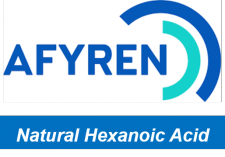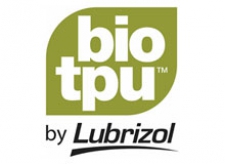
Plastics / Composites / Rubber
Chemical intermediates for production of polymers (building block, reaction component)
Additives for plastic formulation (dye, plasticizer, etc..)
Resins, compounds
Reinforcements (load, technical fabric, etc.)
You are here
-

Sebacic acid
Arkema
Sebacic acid can be used for producing polymers (polyamides, polyesters, bioplastics), esters in industrial applications (plasticizers for lubricants) and in cosmetics, as a corrosion inhibitor in coolant application.Last update 15/05/2014 -

Natural Hexanoic Acid
AFYREN
AFYREN produce a 100% biobased Natural Valeric Acid with a respectful process for environment and non GMO natural microorganisms. The raw materials used are also non GMO.Last update 13/01/2021 -

REFINE® range
APM (Automotive Performance Materials)
REFINE materials are composite materials of vegetable fiber (hemp / wood / sisal / kenaf / linen) + thermoplastic (PVC / PP / PE / ABS / PS / ...).Last update 03/08/2013 -

ESTANE® ECO TPU
Lubrizol Advanced Materials (FKA Merquinsa)
ESTANE® ECO TPU is the flagship product under the Bio-TPU™ by Lubrizol product offering. Originally developed by Merquinsa, ESTANE® ECO TPU is the first bio-based* TPU (thermoplastic polyurethane) to not compromise on high-performance when compared to traditional petroleum-based TPUs.Last update 25/08/2021 -

Dimethyl sebacate
Arkema
Dimethyl sebacate is a product of vegetal origin, processed from castor oil. It can be used an intermediate to produce light stabilizers, a plasticizer, softening agent and solvent for cellulosic resins, synthetic resins and rubbers.Last update 15/05/2014



